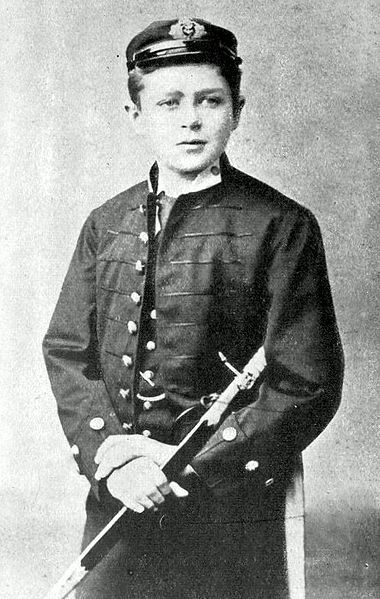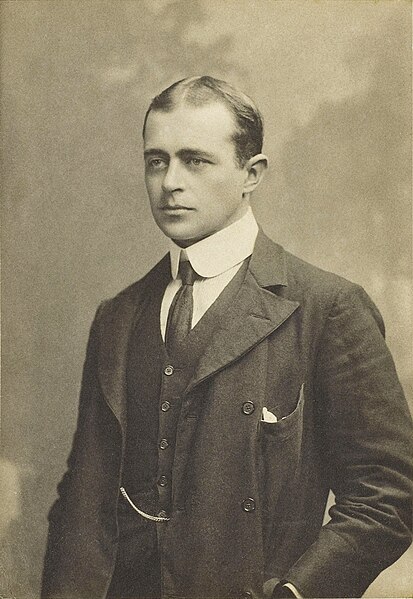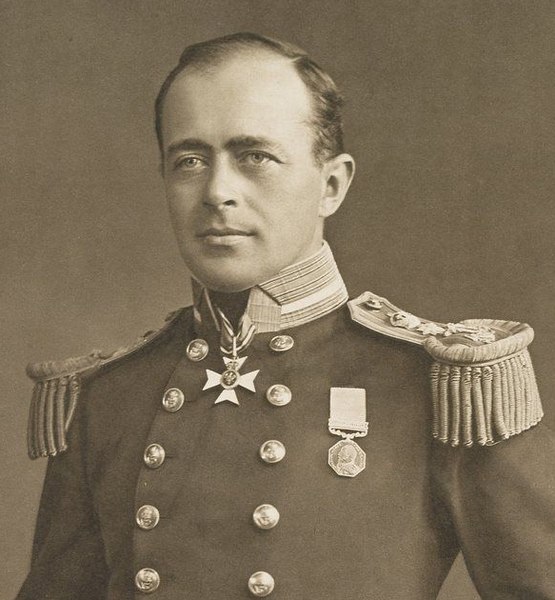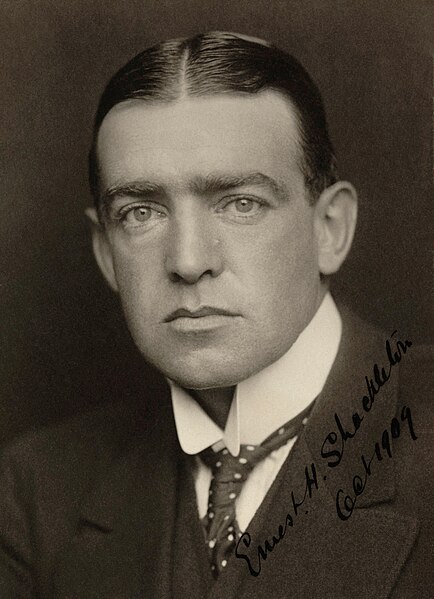Captain Robert Falcon Scott was a British Royal Navy officer and explorer who led two expeditions to the Antarctic regions: the Discovery expedition of 1901–04 and the Terra Nova expedition of 1910–13.
Robert Falcon Scott in 1905
Scott as a naval cadet, 1882
Portrait of Scott by John Thomson, c. 1900
Shackleton, Scott, and Wilson before their march south during the Discovery expedition, 2 November 1902
The Discovery Expedition of 1901–1904, known officially as the British National Antarctic Expedition, was the first official British exploration of the Antarctic regions since the voyage of James Clark Ross sixty years earlier (1839–1843). Organized on a large scale under a joint committee of the Royal Society and the Royal Geographical Society (RGS), the new expedition carried out scientific research and geographical exploration in what was then largely an untouched continent. It launched the Antarctic careers of many who would become leading figures in the Heroic Age of Antarctic Exploration, including Robert Falcon Scott who led the expedition, Ernest Shackleton, Edward Wilson, Frank Wild, Tom Crean and William Lashly.
The expedition ship RRS Discovery in the Antarctic alongside the Great Ice Barrier, now known as the Ross Ice Shelf
Sir James Clark Ross, discoverer of the Ross Sea, the Ross Ice Shelf and McMurdo Sound
Captain Robert Falcon Scott, appointed leader of the Discovery Expedition
Ernest Shackleton, Third Officer on the Discovery








